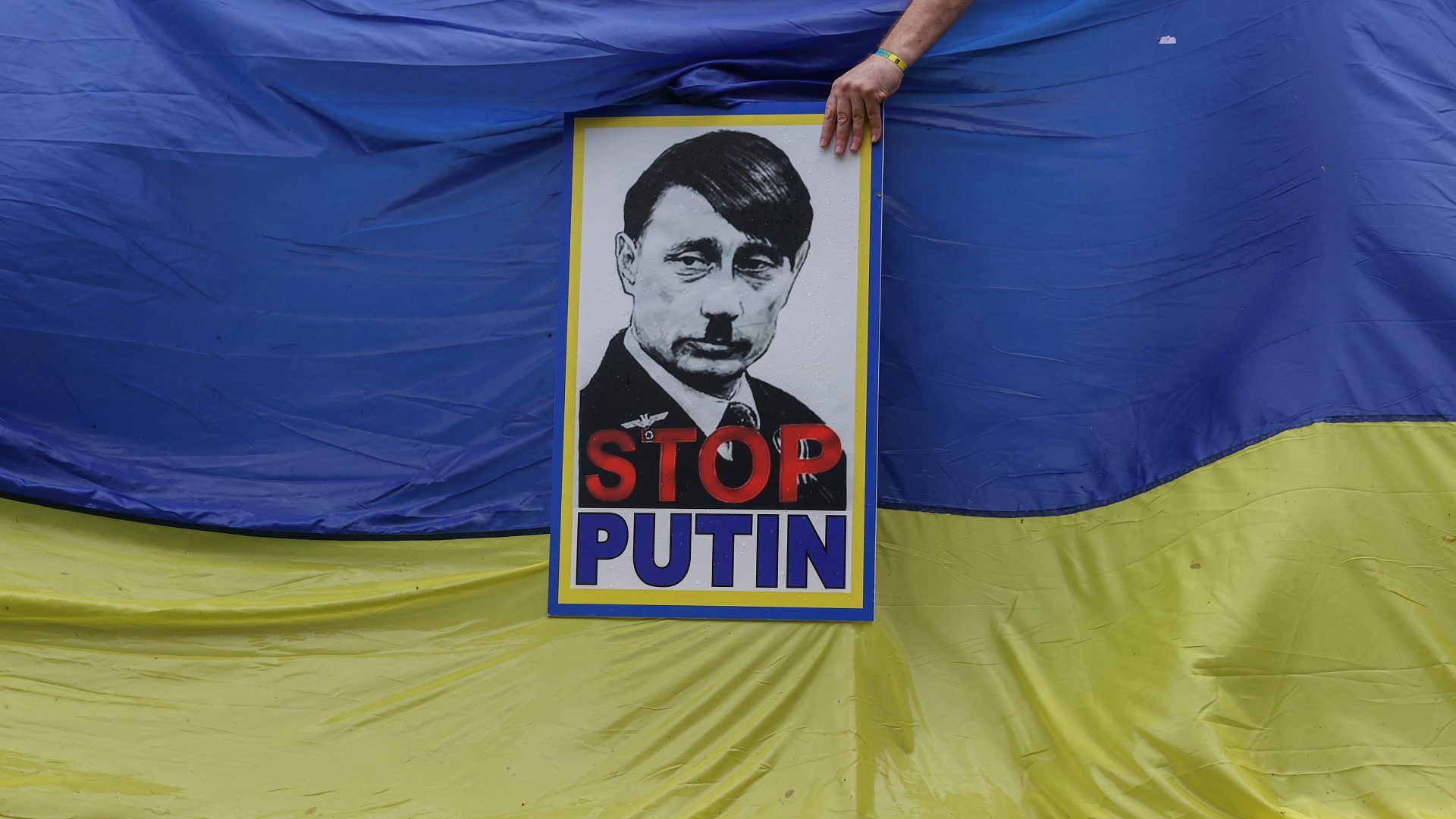Every Saturday a small group of women puts on white headscarves and lay red carnations at the Tomb of the Unknown Soldier in Moscow. This seemingly patriotic act is their rare form of peaceful protest in a country where dissent, especially against the war in Ukraine, is not normally tolerated. A white ribbon with: “It is time to bring the mobilised soldiers home” is placed next to the eternal flame. The women are wives and mothers of Russian conscripts and mobilised reservists. They are members of a group called “The Way Home”. It is starting to attract attention.
Recent events – including Yevgeny Prigozhin’s failed march on Moscow followed by his mysterious death, the stalling of Western aid to Ukraine and the increasing prospect of a Russian ally in the White House in 2025 – have given President Putin added confidence going into March’s elections. He should, however, remember that groups of the bereaved have a history of causing problems for wartime governments in Russia. In 1994, it was wives and mothers that led an anti-war movement during the first Chechen war that helped turn public opinion and influenced the decision to end the fighting.
When “The Way Home” was launched on Telegram last August, the administrators were supportive of the war. They hoped that Putin would listen and return their men. When Andrei Kartapolov, chair of parliament’s defence committee, announced in September there would be no rotation and troops would only return home after the special military operation was completed, their tone changed. In January they met with Boris Nadezhdin, who this week reached the 100,000 signatures required to stand against Putin. Nadezhdin has called the war Putin’s biggest mistake. He will not win the rigged election. His presence is only tolerated to create the illusion of democracy, but this still provided more exposure for the group.
Kartapolov unwittingly highlighted the illegitimacy of the war when referencing the group. He asked if anyone could imagine a delegation of wives going to the Kremlin in 1942 asking to bring soldiers home as they had been fighting for over a year. No-one could. That is because they could recognise the difference between a legitimate war of self-defence and an illegitimate war of aggression.
Back in the 1990s, women organised into groups such as the Committee of Soldiers’ Mothers of Russia (CSM), which had hundreds of hubs across the country. With the help of the group, hundreds of mothers travelled to Chechnya to bring their sons home. They negotiated with the Chechens, obtaining the release of prisoners of war. There are differences between then and now. Then, the group’s message was broadcast on national television as there was still a degree of media independence. The Foreign Agents Law was also not in place.
In 2014, a CSM member stated that wounded soldiers, who had probably been injured in Ukraine, had been taken to St Petersburg hospitals. The group and its members were threatened with arrest under the law for disclosing what the government claimed to be sensitive information. The group still exists but limits its activities to collecting donations for deployed troops.
New networks have developed as women try to obtain information on their loved-ones. Putin met with a handpicked group of mothers of soldiers in November 2022. It was an acknowledgement of the importance of bringing the mothers on side. The Council of Soldiers’ Wives and Mothers has been especially forthright in its complaints. They are not against the war itself and seem to give little thought to the people of Ukraine, but have been protesting the fact that their sons have been sent to the front lines without the right equipment or training and, increasingly, because they have no idea what has become of their loved ones. Last January the Kremlin detained Olga Tsukanova, the leader of the council, while she was en route to Moscow to deliver “more than 700 statements from the mothers of prisoners, missing persons, as well as conscripts.”
From the outset, Russia has not properly accounted for its soldiers and left its dead on the battlefield. This is unacceptable practice in most modern militaries. The US Defense POW/MIA Accounting Agency spends over $100 million a year searching for the 83,000 individuals who are still missing from the Korean, Vietnam, and Second World Wars. When journalist Earl Swift asked the family of a missing US airman from the Vietnam War, whom they knew was undoubtedly dead, why they wanted the search to continue, they said because it showed that he still mattered. To not know whether your loved one is dead or alive is unbearable. That is why the tactic of disappearing people has been used by the most brutal regimes and terrorist groups throughout history. To be left unaccounted for by the state you have given your life for shows that state did not think you mattered.
The Way Home organisation is a reminder that, while Russia’s economy has transitioned to wartime, producing munitions and military hardware, Putin still faces a delicate balance in managing the men that make up his depleted forces. Russia’s sons and husbands cannot be expended like the rockets and shells he continues to launch at Kyiv. By avoiding further mobilisation and conscription he will have to deal with increasingly vocal groups who want to know if they are still wives or now widows. Repeated and prolonged failure to show your soldiers that they matter, will impact their desire to lay down their lives for you.










